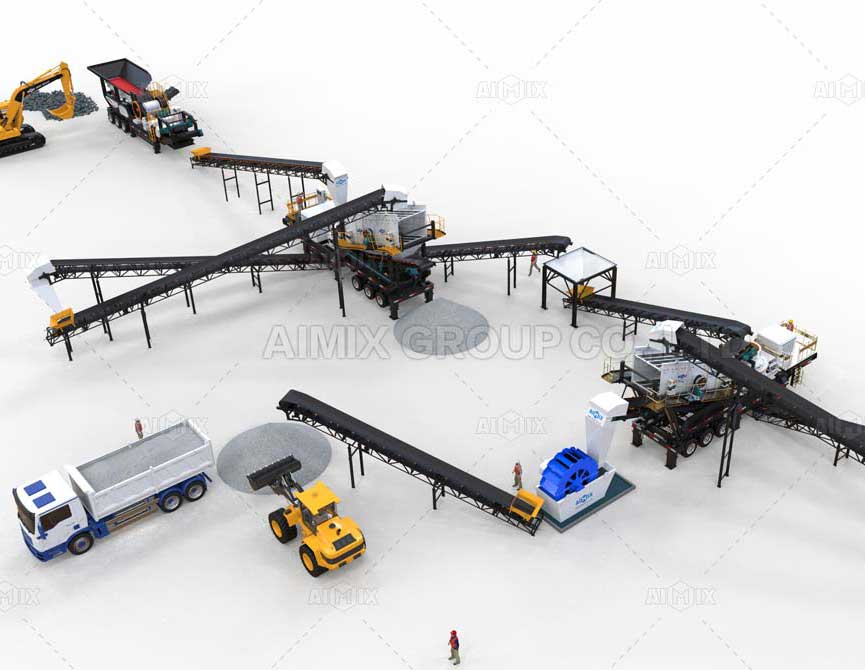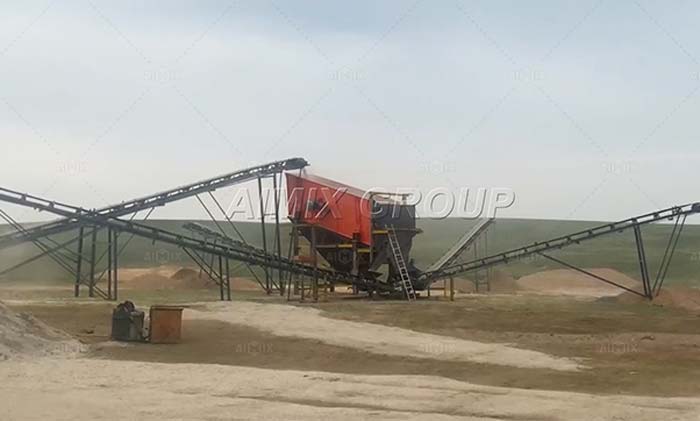In the realm of mineral processing, the proper selection of crushing machines plays a pivotal role in ensuring efficient and effective comminution processes. Quartz, a ubiquitous mineral abundant in the Earth’s crust, poses unique challenges due to its varied compressive strength. Understanding the requirements of crushing machines for quartz is paramount for optimizing production processes and achieving desired outcomes.
Before delving into the specific requirements, it’s essential to grasp the significance of compressive strength in quartz processing. Compressive strength refers to the maximum pressure a material can withstand without undergoing deformation or failure. In the context of stone crusher machine, it dictates the equipment’s ability to break down quartz into smaller particles while maintaining integrity.

Understanding Quartz Compressive Strength
Quartz, a crystalline form of silica, exhibits a wide range of compressive strengths depending on factors such as purity, crystal structure, and geological formation. Generally, quartz possesses a compressive strength ranging from 70 MPa to over 200 MPa. This variability necessitates a nuanced approach in selecting crushing machines tailored to the specific characteristics of the quartz deposit.
Variability in Quartz Compressive Strength
The compressive strength of quartz can vary significantly within a single deposit or across different geological formations. Factors such as grain size distribution, presence of impurities, and structural defects influence this variability. Consequently, quartz crushing plant must be capable of accommodating a wide range of compressive strengths to effectively process quartz.
Impact of Compressive Strength on Crushing Efficiency
The compressive strength of quartz directly impacts the efficiency and performance of crushing machines. Machines designed for lower compressive strengths may struggle to break down high-strength quartz efficiently, resulting in increased energy consumption and operational costs. Conversely, using oversized machinery for lower-strength quartz may lead to excessive wear and reduced equipment lifespan. Achieving the optimal balance between crushing efficiency and equipment capacity is crucial for maximizing productivity.

Requirements for Crushing Machines
To effectively process quartz, crushing machines must meet stringent requirements tailored to the material’s compressive strength and characteristics. These requirements encompass various aspects, including equipment design, operational parameters, and maintenance considerations.
Robust Design and Construction
Crushing machines intended for quartz processing must feature robust design and construction to withstand the high compressive forces exerted during operation. This entails utilizing high-quality materials, such as hardened steel alloys, for key components like crushing chambers, jaws, and anvils. Additionally, reinforcing structural elements and implementing effective vibration damping mechanisms enhance the machine’s durability and longevity.
Adjustable Crushing Parameters
Flexibility in adjusting crushing parameters is essential for accommodating variations in quartz compressive strength. Modern rock crushing equipment incorporate advanced control systems that allow operators to fine-tune parameters such as feed rate, crusher speed, and chamber configuration. By optimizing these parameters based on real-time feedback and material characteristics, operators can maximize throughput while minimizing energy consumption and wear.
Efficient Particle Size Reduction
Crushing machines must efficiently reduce quartz particles to the desired size range while minimizing excessive fines generation. This necessitates precise control over the crushing process to achieve uniform particle size distribution and minimize over-crushing. Innovative technologies such as adjustable eccentricity, hydraulic setting adjustment, and interparticle crushing enable crushing machines to achieve optimal particle size reduction with minimal energy expenditure.
Comprehensive Maintenance Protocols
Regular maintenance is crucial for ensuring the continued performance and reliability of crushing machines in quartz processing operations. Comprehensive maintenance protocols encompass routine inspections, lubrication, wear part replacement, and proactive troubleshooting to identify and address potential issues before they escalate. Implementing a proactive maintenance strategy not only prolongs equipment lifespan but also minimizes unplanned downtime and production interruptions. Check some maintenance tips here: https://aimixglobal.com/common-faults-and-maintenance-guides-of-stone-crusher-plant/.
In conclusion, the compressive strength of quartz significantly influences the requirements of crushing machines employed in mineral processing operations. By understanding the variability in quartz compressive strength and implementing tailored solutions, operators can optimize crushing efficiency, maximize productivity, and achieve superior processing outcomes.